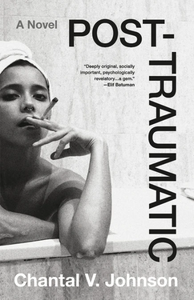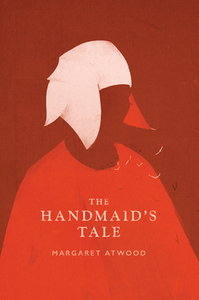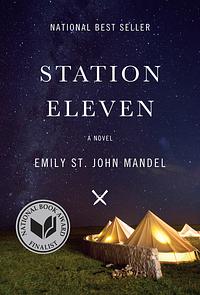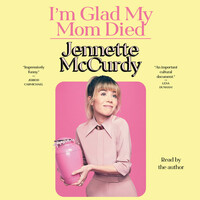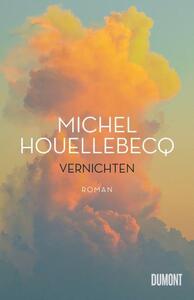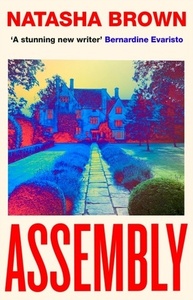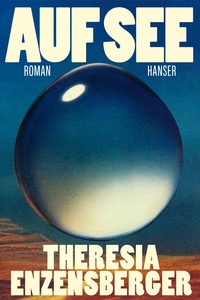Take a photo of a barcode or cover
pascalthehoff's reviews
404 reviews
Post-Traumatic’s protagonist keeps agonizing over her own trauma and flaws while also constantly finding faults in others, blaming their behavior or privileges for her own hardship. At times justifiably so, but often enough, things remain highly ambivalent.
What sounds like your typical „unlikeable protagonist“ goes way beyond that. From her subjective perspective, the protagonist takes us along to empathize with her (arguably toxic) outlook on her own life and the people around her. Through this, the novel makes us understand how people might fall into these ways of thinking.
White people in particular get a lot of sh*t and I, being white myself, think we need these kinds of novels to reflect upon more „radical“ positions and break out of „consensus woke“ norms; the end goal being to go beyond them, attaining an even more progressive society.
The novel contributes to the discourse by making the protagonist question her own stances. Is she too extreme? Is she too influenced by subjective experience and trauma? And how does her academic-ish approach to these topics hold up when applied to reality? She feels guilt and frustration struggling with this, and on her journey she clashes with a lot of friends.
One of the main tensions lies in the question how much the protagonist – or people in general – owe to their own families. Do we owe toxic family structures to keep engaging with them, solely on the basis of having been born into that structure? Or is it okay to make a hard cut and decide in favor of our own personal well-being? What’s interesting about this is that this „I first“ approach has a lot in common with typical neoliberal values. It thus clashes with the usual left-leaning, community-oriented ideas in a way that denies a clear-cut solution.
Another interesting conflict the novel introduces is the well-known plight of all people who have built their progressive values on theory, academia and online activism: Can you practice what you preach when things get real? Can you act according to your proclaimed values? Can you confront others in their discriminatory behavior, even if it means standing out in a room full of people? We all know the figurative record-scratch sound when we interrupt that one colleague making a sexist comment at the company event.
It’s like the practical exam for anyone who rants about equality on the internet every day. But what are the framework conditions that influence our engagement as well as our obligation to engage at all? Post-Traumatic tackles this conundrum better than most academic papers ever could.
The novel puts all of these things into many interesting contexts: from the protagonist’s conflicted relationship to her own body all the way to the rigged psychological „care“ system that with its „hospitals“, to this day, keeps serving as a de facto prison for those who don’t fit society’s expectations of civilized beings.
What sounds like your typical „unlikeable protagonist“ goes way beyond that. From her subjective perspective, the protagonist takes us along to empathize with her (arguably toxic) outlook on her own life and the people around her. Through this, the novel makes us understand how people might fall into these ways of thinking.
White people in particular get a lot of sh*t and I, being white myself, think we need these kinds of novels to reflect upon more „radical“ positions and break out of „consensus woke“ norms; the end goal being to go beyond them, attaining an even more progressive society.
The novel contributes to the discourse by making the protagonist question her own stances. Is she too extreme? Is she too influenced by subjective experience and trauma? And how does her academic-ish approach to these topics hold up when applied to reality? She feels guilt and frustration struggling with this, and on her journey she clashes with a lot of friends.
One of the main tensions lies in the question how much the protagonist – or people in general – owe to their own families. Do we owe toxic family structures to keep engaging with them, solely on the basis of having been born into that structure? Or is it okay to make a hard cut and decide in favor of our own personal well-being? What’s interesting about this is that this „I first“ approach has a lot in common with typical neoliberal values. It thus clashes with the usual left-leaning, community-oriented ideas in a way that denies a clear-cut solution.
Another interesting conflict the novel introduces is the well-known plight of all people who have built their progressive values on theory, academia and online activism: Can you practice what you preach when things get real? Can you act according to your proclaimed values? Can you confront others in their discriminatory behavior, even if it means standing out in a room full of people? We all know the figurative record-scratch sound when we interrupt that one colleague making a sexist comment at the company event.
It’s like the practical exam for anyone who rants about equality on the internet every day. But what are the framework conditions that influence our engagement as well as our obligation to engage at all? Post-Traumatic tackles this conundrum better than most academic papers ever could.
The novel puts all of these things into many interesting contexts: from the protagonist’s conflicted relationship to her own body all the way to the rigged psychological „care“ system that with its „hospitals“, to this day, keeps serving as a de facto prison for those who don’t fit society’s expectations of civilized beings.
The Handmaid’s Tale works better as a feminist bestseller with broad mainstream appeal than it does as a nuanced novelized think piece – though it can, of course, serve as both. (That much should be clear by now, so I won’t go into that. Imagine lots of praise for its broader themes at this point of the review.)
However, its alternate history setting is so extreme that, at times, the shock value is what stands out the most. In this regard, you can tell that the novel stems from a time when feminism as a whole was still more radical; less neutered by today’s more cautious idea of mainstream feminism.
Despite of that, the novel has only become more relevant: In 2022, it sounds more plausible than ever that religious fanatics and conspiracy theorists would overthrow the US goverment in order to rob women of their rights… though it’s still pretty far-fetched, for it to happen the way the novel paints it. Especially with a societal turnaround so thorough, taking place within what seems like a few months or years. That’s a hard sell for me, even with the most generous suspension of disbelief. And being the foundation the rest of the narrative is built upon, this dystopian fairytale slightly devalues many of the heavier themes.
Overall, many of those themes seem like conscious callbacks to how women have been treated in the past. Thus, choosing this weird future setting feels like the author trying to come up with an original setting for originality’s sake, for greater mainstream appeal.
The strong counterbalance to this megalomanic setting are the many nuances and grey-areas in the characters’ interactions with one another as well as their respective thoughts (or lack of outspoken thoughts) on the system they inhabit. Just as often as it dabbles with the extreme, The Handmaid’s Tale is incredibly grounded and heartfelt.
I absolutely don’t want to slam The Handmaid’s Tale for having „too much mainstream appeal“ – I’m not an edgy 14-year-old anymore. I love that the novel is this beacon for feminist literature. Because having such a novel is arguably better than having a hundred academic thinkpieces that may be slightly more nuanced but barely anyone knows.
The Handmaid’s Tale still has got something to contribute to feminist discourse, even almost 40 years after its initial release. It just wasn’t something that wowed me in any way, and as a novel it felt a bit too overambitious for my taste. But I’m glad to have finally read it.
However, its alternate history setting is so extreme that, at times, the shock value is what stands out the most. In this regard, you can tell that the novel stems from a time when feminism as a whole was still more radical; less neutered by today’s more cautious idea of mainstream feminism.
Despite of that, the novel has only become more relevant: In 2022, it sounds more plausible than ever that religious fanatics and conspiracy theorists would overthrow the US goverment in order to rob women of their rights… though it’s still pretty far-fetched, for it to happen the way the novel paints it. Especially with a societal turnaround so thorough, taking place within what seems like a few months or years. That’s a hard sell for me, even with the most generous suspension of disbelief. And being the foundation the rest of the narrative is built upon, this dystopian fairytale slightly devalues many of the heavier themes.
Overall, many of those themes seem like conscious callbacks to how women have been treated in the past. Thus, choosing this weird future setting feels like the author trying to come up with an original setting for originality’s sake, for greater mainstream appeal.
The strong counterbalance to this megalomanic setting are the many nuances and grey-areas in the characters’ interactions with one another as well as their respective thoughts (or lack of outspoken thoughts) on the system they inhabit. Just as often as it dabbles with the extreme, The Handmaid’s Tale is incredibly grounded and heartfelt.
I absolutely don’t want to slam The Handmaid’s Tale for having „too much mainstream appeal“ – I’m not an edgy 14-year-old anymore. I love that the novel is this beacon for feminist literature. Because having such a novel is arguably better than having a hundred academic thinkpieces that may be slightly more nuanced but barely anyone knows.
The Handmaid’s Tale still has got something to contribute to feminist discourse, even almost 40 years after its initial release. It just wasn’t something that wowed me in any way, and as a novel it felt a bit too overambitious for my taste. But I’m glad to have finally read it.
Ich habe dieses Buch zweimal gelesen. Einmal drei Jahre, bevor ich selbst zu laufen begonnen habe; das nächste mal heute, drei Jahre danach, wo ich selbst bereits Halbmarthonstrecken schaffe – wenn auch nicht so flott wie Murakami.
Ich war immer ein sehr fauler Mensch, aber irgendwann hatte ich meinen magic moment: Wenn ich heute laufe, ist das für mich kein Sport. Ich mache das einfach aus Freude an der Sache. Ebenso wie Murakami.
Genau diese Einstellung fängt das Buch wunderbar ein. Auf seine typisch introspektive, romantisierende Art erzählt Murakami, was das Laufen für ihn so faszinierend macht.
Weil ich für solche ästhetisierenden Selbstanalysen unheimlich empfänglich bin, hat mich das Buch bereits beim ersten Lesen mehr für Sport begeistert als es jedes Coaching- oder Selbsthilfebuch je geschafft hätte. Beim zweiten Lesen halt es mir dabei, meine eigenen Erfahrungen einzuordnen und meine eigene Faszination besser zu verstehen.
Murakami verfolgt sein Hobby laienhaft und blauäugig. Er überschätzt sich gerne und plant seine Runden – trotz exzessiver praktischer Vorbereitung – nur wenig theoretisch. Genau das macht seine Erfahrungen so unvorhersehbar, emotional und aufregend. Wer sonst würde ganz allein den originalen Marathon in Athen laufen… und sich dann wundern, wie heiß die mediterrane Morgensonne wirklich ist?
Ich war immer ein sehr fauler Mensch, aber irgendwann hatte ich meinen magic moment: Wenn ich heute laufe, ist das für mich kein Sport. Ich mache das einfach aus Freude an der Sache. Ebenso wie Murakami.
Genau diese Einstellung fängt das Buch wunderbar ein. Auf seine typisch introspektive, romantisierende Art erzählt Murakami, was das Laufen für ihn so faszinierend macht.
Weil ich für solche ästhetisierenden Selbstanalysen unheimlich empfänglich bin, hat mich das Buch bereits beim ersten Lesen mehr für Sport begeistert als es jedes Coaching- oder Selbsthilfebuch je geschafft hätte. Beim zweiten Lesen halt es mir dabei, meine eigenen Erfahrungen einzuordnen und meine eigene Faszination besser zu verstehen.
Murakami verfolgt sein Hobby laienhaft und blauäugig. Er überschätzt sich gerne und plant seine Runden – trotz exzessiver praktischer Vorbereitung – nur wenig theoretisch. Genau das macht seine Erfahrungen so unvorhersehbar, emotional und aufregend. Wer sonst würde ganz allein den originalen Marathon in Athen laufen… und sich dann wundern, wie heiß die mediterrane Morgensonne wirklich ist?
Everything that takes place immediately before or after the apocalyptic epidemic is absolutely incredible in its minute emotional portrayal of the characters it focuses on. The panic, the denial, the acceptance, the perseverance, the hope and solidarity... It all hits even harder after having only recently witnessed an unknown, rapidly spreading virus in real life. While covid-19 was rather tame in comparison, the virus in Station Eleven pulls absolutely no punches. Instead of turning this scenario into a horror novel, however, Station Eleven focuses on very intimate aspects of what it means when the Anthropocene finds its preliminary end within a few days.
That's all amazing. And then there are the chapters that take place years before and after the event.
While those chapters are more of a mixed bag, they are by no means bad. The only fault of the pre-epidemic chapters is that they don't really add enough to the core of the novel. I thought a lot about how the characters in those chapters may matter more than is apparent at first glance. But in the end, I don't think that those rather distant (mostly allegorical?) ties between the two segments warrant taking up such a large proportion of the novel. But who knows, maybe it's just me missing the point here.
The future chapters felt even more meandering, especially with their insistence on cramming Shakespeare in there. (I didn't buy that – people returning to the good old entertainment of the 17th century? After more than a decade of Netflix binging, that idea seems more implausible that the deadly virus.) Those chapters were great, though, in that they depicted a post-apocalyptic society that quickly overcame fights and gang wars and thus is NOT defined by violence and envy. It's peaceful and tranquil to a degree that makes you think at times whether this could be, in certain aspects, a superior model to the one we live in today. And it paints a picture of humanity that is much more confident in our abilities to help one another than most other stories about the downfall of civilization
The true hard-hitter, however, are the incredulous and baffled reactions by those who are too young to have ever witnessed our present, modern society. It puts into perspective just how incredible, but also how unlikely and fleeting our ease of living, our wealth and technological accomplishments are.
That's all amazing. And then there are the chapters that take place years before and after the event.
While those chapters are more of a mixed bag, they are by no means bad. The only fault of the pre-epidemic chapters is that they don't really add enough to the core of the novel. I thought a lot about how the characters in those chapters may matter more than is apparent at first glance. But in the end, I don't think that those rather distant (mostly allegorical?) ties between the two segments warrant taking up such a large proportion of the novel. But who knows, maybe it's just me missing the point here.
The future chapters felt even more meandering, especially with their insistence on cramming Shakespeare in there. (I didn't buy that – people returning to the good old entertainment of the 17th century? After more than a decade of Netflix binging, that idea seems more implausible that the deadly virus.) Those chapters were great, though, in that they depicted a post-apocalyptic society that quickly overcame fights and gang wars and thus is NOT defined by violence and envy. It's peaceful and tranquil to a degree that makes you think at times whether this could be, in certain aspects, a superior model to the one we live in today. And it paints a picture of humanity that is much more confident in our abilities to help one another than most other stories about the downfall of civilization
The true hard-hitter, however, are the incredulous and baffled reactions by those who are too young to have ever witnessed our present, modern society. It puts into perspective just how incredible, but also how unlikely and fleeting our ease of living, our wealth and technological accomplishments are.
This is a great radar for exposing toxic parents, a poignant reminder that wealth doesn't equal happiness, and one of the most convincing argumentations pro therapy and mental health awareness – all wrapped up in a disarmingly honest and shockingly charming story. Absolutely no surprise that so many people are reading this right now.
Bei all dem Red-Scare-China-Hass, der aktuell umhergeht, beweist dieses Buch: In vielerlei Hinsicht läuft es dort tatsächlich besser als bei uns. Wer hätte es gedacht? Wären da nicht die Menschenrechtsverletzungen, die enormen regionalen Ungleichheiten, die toxische Arbeitskultur… naja.
Gleich vorweg: Dieses Buch ist keine sozialwissenschaftliche, empirische Untersuchung der Stadt Shenzhen, sondern vielmehr ein journalistisches Zeitzeugnis. Für meinen Geschmack haben Führungskräfte und Marketingpersonen großer Konzerne ein paar Seiten zu viel bekommen. Aber man muss dem Buch zugutehalten, seine Quellen stets klar zu benennen – ob Huawei-CEO oder Hippie-Dullis. Es liegt dann an den Leser*innen, solche Passagen kritisch zu hinterfragen.
Zudem positioniert sich der Autor immer wieder kritisch zum Thema Überwachungsstaat, erklärt aber auch überraschend plausibel, wieso dieses System in China funktioniert und wieso viele der Menschen vor Ort zumindest behaupten, die Vorteile würden die Nachteile überwiegen.
Diesen Haaren in der Suppe zum Trotz: Als Best-Practice für die moderne urbane Gesellschaft ist Shenzhen ein vielversprechendes, ambitioniertes Modell, bei dem stellenweise sogar die (positiv konnotiert) wahren kommunistischen Wurzeln des modernen chinesischen Staatskapitalismus durchscheinen.
Während im Westen der Markt komplett frei dreht und im Chaos versinkt, scheint hier noch ein Funke Pragmatismus zu herrschen. Die Politik wirkt weniger gefangen in konservativen Denkstrukturen, die alte wirtschaftliche Größen auf Teufel komm raus groß halten will.
Zum Beispiel wird das autonome Fahren im Westen wie auch in China gepusht. Doch wirkt das Shenzhener Modell deutlich progressiver und nachhaltiger: Sich langfrisitg gänzlich vom Individualverkehr mit Autos als Eigenbesitz zu verabschieden, wäre im Westen undenkbar. (Danke, Autolobby.) In Shenzhen wirkt solch ein intelligentes Taxi-Netz wie das logische Bindeglied im ÖPNV. Zumindest in der Theorie.
Bei allem kapitalistischen Wirtschaftsstreben des modernen chinesischen Staats scheinen Werte und langfristige Ziele hier noch mehr wert zu sein. Nicht zuletzt, weil die Partei ein Interesse daran hat, als Anführer (ausgewählter) moderner Werte und Ideen gesehen zu werden – und das auch für die nächsten 100 Jahre.
Massentierhaltung und Fleischkonsum innerhalb eines im Westen so beliebten Fünf-Jahres-Plans zu verbieten, dürfte unmöglich sein. Doch in China existiert zumindest das klare Ziel, diese Industrie langfristig dicht zu machen – vielleicht auch, weil im autoritären Staat niemand fürchten muss, sich bei Neuwahlen mit radikal progressiver Klimapolitik unbeliebt zu machen. Das Buch zeigt, wie Shenzhen als Speerspitze der chinesischen Wirtschaft solche Ideen vorantreibt.
Dass das alles (wirklich absolut alles) zwei Seiten hat, bleibt beim Lesen immer im Kopf. Doch zeigt das Buch, dass der Westen nicht weiterhin pauschal auf China hinabblicken darf. Die Old World wird sich mit ihrer Pseudoüberlegenheit, die uns selbst vernichtet und am Ende nur eine absolute Minderheit beflügelt, früher oder später zum Narren auf der globalen Bühne entwickeln.
Gleich vorweg: Dieses Buch ist keine sozialwissenschaftliche, empirische Untersuchung der Stadt Shenzhen, sondern vielmehr ein journalistisches Zeitzeugnis. Für meinen Geschmack haben Führungskräfte und Marketingpersonen großer Konzerne ein paar Seiten zu viel bekommen. Aber man muss dem Buch zugutehalten, seine Quellen stets klar zu benennen – ob Huawei-CEO oder Hippie-Dullis. Es liegt dann an den Leser*innen, solche Passagen kritisch zu hinterfragen.
Zudem positioniert sich der Autor immer wieder kritisch zum Thema Überwachungsstaat, erklärt aber auch überraschend plausibel, wieso dieses System in China funktioniert und wieso viele der Menschen vor Ort zumindest behaupten, die Vorteile würden die Nachteile überwiegen.
Diesen Haaren in der Suppe zum Trotz: Als Best-Practice für die moderne urbane Gesellschaft ist Shenzhen ein vielversprechendes, ambitioniertes Modell, bei dem stellenweise sogar die (positiv konnotiert) wahren kommunistischen Wurzeln des modernen chinesischen Staatskapitalismus durchscheinen.
Während im Westen der Markt komplett frei dreht und im Chaos versinkt, scheint hier noch ein Funke Pragmatismus zu herrschen. Die Politik wirkt weniger gefangen in konservativen Denkstrukturen, die alte wirtschaftliche Größen auf Teufel komm raus groß halten will.
Zum Beispiel wird das autonome Fahren im Westen wie auch in China gepusht. Doch wirkt das Shenzhener Modell deutlich progressiver und nachhaltiger: Sich langfrisitg gänzlich vom Individualverkehr mit Autos als Eigenbesitz zu verabschieden, wäre im Westen undenkbar. (Danke, Autolobby.) In Shenzhen wirkt solch ein intelligentes Taxi-Netz wie das logische Bindeglied im ÖPNV. Zumindest in der Theorie.
Bei allem kapitalistischen Wirtschaftsstreben des modernen chinesischen Staats scheinen Werte und langfristige Ziele hier noch mehr wert zu sein. Nicht zuletzt, weil die Partei ein Interesse daran hat, als Anführer (ausgewählter) moderner Werte und Ideen gesehen zu werden – und das auch für die nächsten 100 Jahre.
Massentierhaltung und Fleischkonsum innerhalb eines im Westen so beliebten Fünf-Jahres-Plans zu verbieten, dürfte unmöglich sein. Doch in China existiert zumindest das klare Ziel, diese Industrie langfristig dicht zu machen – vielleicht auch, weil im autoritären Staat niemand fürchten muss, sich bei Neuwahlen mit radikal progressiver Klimapolitik unbeliebt zu machen. Das Buch zeigt, wie Shenzhen als Speerspitze der chinesischen Wirtschaft solche Ideen vorantreibt.
Dass das alles (wirklich absolut alles) zwei Seiten hat, bleibt beim Lesen immer im Kopf. Doch zeigt das Buch, dass der Westen nicht weiterhin pauschal auf China hinabblicken darf. Die Old World wird sich mit ihrer Pseudoüberlegenheit, die uns selbst vernichtet und am Ende nur eine absolute Minderheit beflügelt, früher oder später zum Narren auf der globalen Bühne entwickeln.
Nothing is more embarrassing than a self-proclaimed progressive socialist/leftist/whatever who still glorifies the imperialist communist leaders of the 20th century. This historical novel explains through narrative why the Great Chairman might not have been so great after all, from a very close and personal (fictitious) view.
The perspective of the young protege helps us understand why people were so on board with Mao and his revolutional ideas, while also revealing the underlying power structures that contradict many of the ideals the revolution was supposed to stand for. Forbidden City shines in its chapters where the Cultural Revolution kicks into full throttle. Its most interesting during its gradual shift from blind adoration of Mao to critical distance.
Whenever the bigger historical figures and events fade into a background and the novel focuses on its protagonist for pages on end, however, the overall slow pace begins to drag. The protagonist is what makes the novel work and what makes it unique, from a modern feminist perspective as well. But in general, Forbidden City loves overly detailed descriptions and inner monologues a bit too much. They hit just as often as they miss.
And then there is the after taste that seems awkwardly pro-capitalist. Very surprising for a novel that - at least for the most part - is very nuanced and adequately ambiguous when it comes to complex social and political issues, not giving in to the temptation of easy answers. Though, in a way, it is a logical conclusion for the arc of the protagonist.
The perspective of the young protege helps us understand why people were so on board with Mao and his revolutional ideas, while also revealing the underlying power structures that contradict many of the ideals the revolution was supposed to stand for. Forbidden City shines in its chapters where the Cultural Revolution kicks into full throttle. Its most interesting during its gradual shift from blind adoration of Mao to critical distance.
Whenever the bigger historical figures and events fade into a background and the novel focuses on its protagonist for pages on end, however, the overall slow pace begins to drag. The protagonist is what makes the novel work and what makes it unique, from a modern feminist perspective as well. But in general, Forbidden City loves overly detailed descriptions and inner monologues a bit too much. They hit just as often as they miss.
And then there is the after taste that seems awkwardly pro-capitalist. Very surprising for a novel that - at least for the most part - is very nuanced and adequately ambiguous when it comes to complex social and political issues, not giving in to the temptation of easy answers. Though, in a way, it is a logical conclusion for the arc of the protagonist.
Eine unerwartet persönliche Geschichte, in der sogar die Terrorkrise globalen Ausmaßes gegenüber der Late-Life-Crisis des Protagonisten zurückstecken muss. Es scheint beinahe, als hätte Houellebecq in diesem Spätwerk beim Schreiben allmählich das Interesse an seiner eigentlichen Grundidee verloren – was wunderbar die friedvolle Resignation der Hauptfigur widerspiegelt.
Ich kam für eine kritische Momentaufnahme des gespaltenen Frankreichs und blieb für... ja, wofür eigentlich? Die vermeintlich belanglosen, zwischenmenschlichen Elemente überlagern die Rahmenhandlung so sehr, bis sie selbst zum Zentrum des Plots werden: Altenpflege, Langzeitehe, plötzliche Krankheiten – Probleme dieser Art. Vernichten zeigt also einen "High-Concept-Autor", der seinen messerscharfen Blick plötzlich alltäglichen Dingen widmet. (Was den Quarzkopf Houellebecq jetzt nicht auf ein höheres Podest stellen soll, als er es verdient...)
Der Protagonist ist weiterhin niemand, mit dem man nach dem Lesen noch ein Bier trinken will. Doch verstärken seine vielen Makel die Glaubwürdigkeit seiner tiefgründigen Gedanken über das eigene, belanglose Leben. Starke Main-Character-Energie für alte weiße Männer; in diesem Fall aber mit Daseinsberechtigung, weil sehr gut eingefangen. Ob es dafür 600 Seiten brauchte, ist die andere Frage.
Entgegen seines Titels versöhnt Vernichten gespaltene Figuren im intimen Rahmen. Es ist damit ein überraschend non-toxischer, optimistischer Roman, der davon profitiert, dass seine Charaktere nie geschönt oder idealisiert erscheinen.
Ich kam für eine kritische Momentaufnahme des gespaltenen Frankreichs und blieb für... ja, wofür eigentlich? Die vermeintlich belanglosen, zwischenmenschlichen Elemente überlagern die Rahmenhandlung so sehr, bis sie selbst zum Zentrum des Plots werden: Altenpflege, Langzeitehe, plötzliche Krankheiten – Probleme dieser Art. Vernichten zeigt also einen "High-Concept-Autor", der seinen messerscharfen Blick plötzlich alltäglichen Dingen widmet. (Was den Quarzkopf Houellebecq jetzt nicht auf ein höheres Podest stellen soll, als er es verdient...)
Der Protagonist ist weiterhin niemand, mit dem man nach dem Lesen noch ein Bier trinken will. Doch verstärken seine vielen Makel die Glaubwürdigkeit seiner tiefgründigen Gedanken über das eigene, belanglose Leben. Starke Main-Character-Energie für alte weiße Männer; in diesem Fall aber mit Daseinsberechtigung, weil sehr gut eingefangen. Ob es dafür 600 Seiten brauchte, ist die andere Frage.
Entgegen seines Titels versöhnt Vernichten gespaltene Figuren im intimen Rahmen. Es ist damit ein überraschend non-toxischer, optimistischer Roman, der davon profitiert, dass seine Charaktere nie geschönt oder idealisiert erscheinen.
It hits harder because it throws so many punches so fast. Not by any means an original novel, in this age, but one that packs a lot into very few pages, without ever feeling stilted or cramped. Assembly works just as fine as an informal manifesto as it does as a novella.
Dystopieromane, die zum Rundumschlag gegen das neoliberale System ausholen, gibt es wie Muscheln in der Ostsee. Doch nur wenige dieser Epen kommen aus Deutschland und nur wenige platzieren ihre Hiebe so leise – manchmal leider fast schmerzlos.
Angenehm frisch ist, wie intim und Charakter-zentrisch Auf See die Klischees zentnerschwerer Dystopieromane umgeht. Statt seitenlanger Paragraphen über die Lore der Seestatt mit Doppel-t gibt es historische Einblicke in die Geschichte realer alternativer Gesellschaftsentwürfe – zwar wie copy-pasted aus Wikipedia, aber hervorragend auf den Punkt gebracht. Da fließen die Spuren der Recherche zum Roman gleich durch den Haupttext.
Weil echte #Macher für sich arbeiten lassen, statt selbst den Finger zu rühren, glänzen auch die Drahtzieher (bewusst Maskulinum) hinter der vermeintlichen Utopie durch Abwesenheit. Umso mehr Aufmerksamkeit bekommt der Rest der Figuren.
Klingt alles erst einmal super, doch beim Lesen dachte ich häufig, dass Auf See sein einzigartiges und spannendes Setting kaum ausreizt. Das Aushebeln der Genre-Geflogenheiten geht so weit, dass die exakte Rahmung mit der Seestatt nur selten unmittelbar relevant für die konkreten Situationen der Charaktere ist. Dadurch sind ihre Schicksale zwar näher an der Realität der Leser*innen... aber ist es das, wofür man einen Roman wie Auf See liest?
Die stärksten ideologischen Kernthesen des Romans erscheinen häufig als ausformulierte Parolen wie aus dem Jacobin-Magazin. (Was ja based ist.) Schwarz auf weiß abgedruckt gibt es gerade bei den spannendsten Fragen, die der Roman aufwirft, nur wenig Transferleistung zwischen Erzähltem und Gemeintem. Liest sich aber sehr schlau.
Und dann wären da noch – manche hassen sie, manche lieben sie: Kurze Kapitel mit ständigem Perspektivwechsel. Für mich stört das ständige Charakterkarussell den Lesefluss und wirkt sich sogar negativ auf meine Aufmerksamkeitsspanne aus. Ohnehin ist der (über weite Strecken) lose Zusammenhang zwischen den Erzählsträngen aus narrativer Sicht nur wenig sinnvoll. Zum einen sollten für die Charaktere innerhalb der Geschichte alle Zusammenhänge sonnenklar sein; zum anderen sehe ich rückblickend keinen wirklichen Mehrwert, die Leser*innen im Dunkeln zu lassen. Experimentelles Erzählen mit dem Experiment selbst als größten Grund dafür.
Angenehm frisch ist, wie intim und Charakter-zentrisch Auf See die Klischees zentnerschwerer Dystopieromane umgeht. Statt seitenlanger Paragraphen über die Lore der Seestatt mit Doppel-t gibt es historische Einblicke in die Geschichte realer alternativer Gesellschaftsentwürfe – zwar wie copy-pasted aus Wikipedia, aber hervorragend auf den Punkt gebracht. Da fließen die Spuren der Recherche zum Roman gleich durch den Haupttext.
Weil echte #Macher für sich arbeiten lassen, statt selbst den Finger zu rühren, glänzen auch die Drahtzieher (bewusst Maskulinum) hinter der vermeintlichen Utopie durch Abwesenheit. Umso mehr Aufmerksamkeit bekommt der Rest der Figuren.
Klingt alles erst einmal super, doch beim Lesen dachte ich häufig, dass Auf See sein einzigartiges und spannendes Setting kaum ausreizt. Das Aushebeln der Genre-Geflogenheiten geht so weit, dass die exakte Rahmung mit der Seestatt nur selten unmittelbar relevant für die konkreten Situationen der Charaktere ist. Dadurch sind ihre Schicksale zwar näher an der Realität der Leser*innen... aber ist es das, wofür man einen Roman wie Auf See liest?
Die stärksten ideologischen Kernthesen des Romans erscheinen häufig als ausformulierte Parolen wie aus dem Jacobin-Magazin. (Was ja based ist.) Schwarz auf weiß abgedruckt gibt es gerade bei den spannendsten Fragen, die der Roman aufwirft, nur wenig Transferleistung zwischen Erzähltem und Gemeintem. Liest sich aber sehr schlau.
Und dann wären da noch – manche hassen sie, manche lieben sie: Kurze Kapitel mit ständigem Perspektivwechsel. Für mich stört das ständige Charakterkarussell den Lesefluss und wirkt sich sogar negativ auf meine Aufmerksamkeitsspanne aus. Ohnehin ist der (über weite Strecken) lose Zusammenhang zwischen den Erzählsträngen aus narrativer Sicht nur wenig sinnvoll. Zum einen sollten für die Charaktere innerhalb der Geschichte alle Zusammenhänge sonnenklar sein; zum anderen sehe ich rückblickend keinen wirklichen Mehrwert, die Leser*innen im Dunkeln zu lassen. Experimentelles Erzählen mit dem Experiment selbst als größten Grund dafür.
